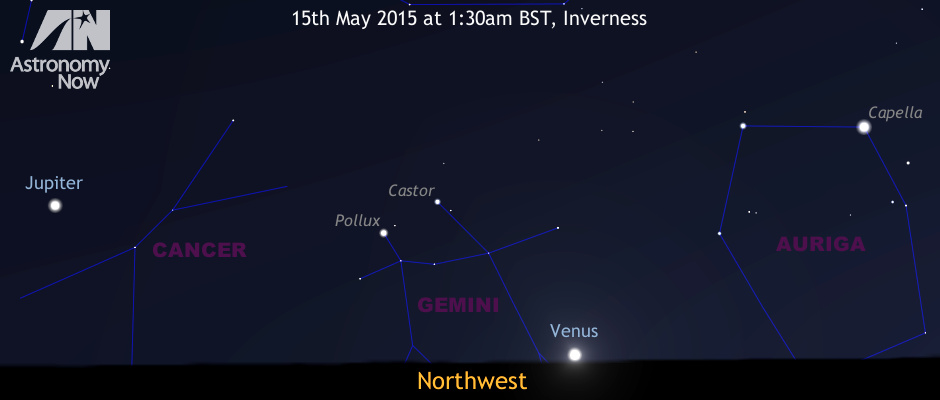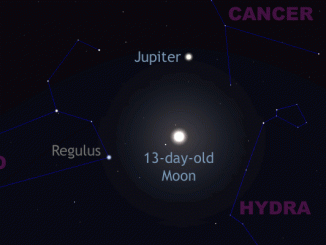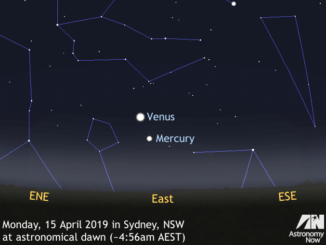
Gemini is the constellation in which the Sun resides at the northern Summer Solstice which occurs on June 21st this year, so any planet that lies close to the ecliptic in this region of sky will stay above the horizon a long time for observers at high northern latitudes. Furthermore, since Venus’ orbit is inclined to that of the Earth’s by about 3.4°, we frequently observe the planet north (or south) of the ecliptic. It so happens that Venus presently lies 2.6° north of the ecliptic, only adding to its high northerly declination.
Despite the fact that Venus attained its maximum declination of +26°02’38” on the afternoon of May 10th — which explains why it is currently setting as far around the horizon as northwest in the British Isles — the planet has not yet attained its greatest easterly elongation of 45° from the Sun that occurs on June 6th. Consequently, Venus is still setting later with each passing night.
So, when does Venus set at its latest in the British Isles over the next few days, and will you see it (weather permitting)? Two things will help you set a personal best late-viewing Venus record:
- An unobscured and level view of the northwest horizon, preferably looking out to sea.
- The further north and west you live, the later the planet will set.
Use our online Almanac to find out sunset, twilight and setting times for Venus, but some examples around the country throughout May 2015 are summarised in the following table: As a final thought, if you live at a latitude north of +64° (say, Reykjavík in Iceland), then Venus is currently a circumpolar object. This means that north of the Arctic Circle, the planet merely dips to the northern horizon at lower culmination but doesn’t set. One note of warning: please only search for Venus with binoculars or telescopes when the Sun is below the horizon. Clear skies!
As a final thought, if you live at a latitude north of +64° (say, Reykjavík in Iceland), then Venus is currently a circumpolar object. This means that north of the Arctic Circle, the planet merely dips to the northern horizon at lower culmination but doesn’t set. One note of warning: please only search for Venus with binoculars or telescopes when the Sun is below the horizon. Clear skies!
Inside the magazine
You can find out more about observing Venus in the May edition of Astronomy Now in addition to a full observing guide to the night sky.
Never miss an issue by subscribing to the UK’s biggest astronomy magazine. Also available for iPad/iPhone and Android devices.




